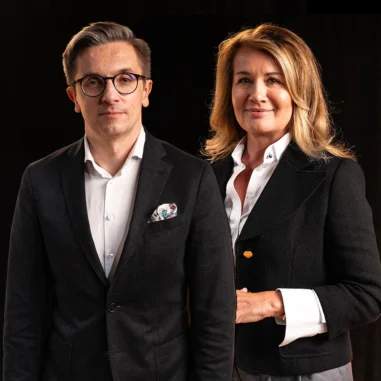
Should health education be compulsory? Episode 91
Can health science divide society? It turns out that it can. The subject of health education in schools arouses huge emotions, and many myths have grown up around the programme. In 'Po pierwsze Pacjent', Monika Rachtan talks to Prof Zbigniew Izdebski and Dr Piotr Dąbrowiecki about the facts and misinformation surrounding health education.
Health education
Health knowledge is something that affects our entire lives - from our daily habits to the decisions we make to the length and quality of our lives. Therefore, health education in schools is an opportunity for children and young people to learn from an early age how to take care of their body and mind. As Professor Zbigniew Izdebski emphasises, the programme of this subject covers not only diet or physical activity, but also mental health, disease prevention and even the dangers of the Internet. This is comprehensive knowledge that can help avoid many health problems in the future.
Nevertheless, health education will not be compulsory, and it will be up to parents to decide whether children should participate. Dr Piotr Dąbrowiecki points out that this could result in some pupils not benefiting from this knowledge, which could have negative consequences in the long run. It's a bit like vaccinations - if they're compulsory, the majority take advantage of them. If not, attendance drops dramatically. In a world where lifestyle diseases, addictions and physical inactivity are becoming an increasing problem, health education should not be an add-on but a necessity.
Sex education
The subject of sex education has been a matter of emotion for years, and it is no different with the new subject 'Health Education'. There are fears among parents that these lessons will lead to the 'sexualisation of children'. Meanwhile, as Professor Zbigniew Izdebski points out, sexual health education is only a small part of the entire programme - exactly 1% of content. The important thing is that it is based on medicine and scientific evidence, and its main aim is proven knowledge, not the promotion of any ideology.
Paradoxically, it is the lack of sex education that can lead to greater danger. When children do not receive reliable information, they look for it on the Internet, where they often end up with false content or pornographic material. Let us not delude ourselves that our children do not have access to such content. They are finding it - the question is whether we want their only source of knowledge to be the internet.
Effects of lack of health education
Without thorough health education, society is losing a tool for prevention and conscious care of its health. As a result, the number of wrong decisions regarding lifestyle, nutrition, mental hygiene or avoiding addictions is increasing. It is this lack of knowledge that causes children to turn to e-cigarettes and adults to underestimate the first symptoms of diseases of civilisation.
The problem does not only affect young people. Adults often do not know how to take care of their long-term health, which leads to premature health problems and a reduced quality of life. Without systematic health education, we get sick more often and live shorter lives, and this costs both individuals and society as a whole.
Health education and the ageing population
Poland, like many other countries, is facing the problem of an ageing population. Fewer and fewer births, increasing life expectancy and the growing needs of seniors make preventive health care crucial. As Dr Piotr Dabriecki points out, health education is not just knowledge for the youngest, it is a tool that can influence entire generations, shaping a health-conscious approach in families.
Children who learn healthy habits not only use them themselves, but also pass them on to their parents and grandparents. They can remind them about regular checkups, encourage them to move or change their diet. These are small actions that, on a societal scale, can make a significant difference to the length and quality of life.
The 'Patient First' programme is available on multiple platforms, including Spotify and Apple Podcasts.
Transcription
Monika Rachtan
I invite you to listen to the programme. First Patient. Good morning. Monika. I would like to welcome you to another episode of the programme. Po Pierwsze Pacjent. We are in a very special place today at a patient organisation forum organised by the Institute for Patients' Rights and Health Education. And we are going to talk today precisely about health education, which was the topic of many of the panels held during today's and yesterday's forum. And with me is Professor Zbigniew Izdebski. Good morning, and a warm welcome, Professor. Professor, how did you take the news that health education will not be a compulsory subject?
Zbigniew Izdebski
Naturally, I would have preferred this education to be a compulsory subject. But you know, we have been fighting for health education for very many years. We have talked to all Ministers of Health and Ministers of Education about the need. About the need? Yes. Everyone pointed out to us yes. So that it is definitely needed. It is important. But nobody has shown that much interest and that determination to have the subject introduced. Therefore, as I said at the beginning, I would prefer the subject to be compulsory and I hope that in the future this will happen. As a team, however, we are at a stage where we are happy for the subject to be introduced at school as health education, albeit on an optional basis.
Monika Rachtan
Professor, the decision on whether a child will attend health education classes will be made by the parents. Parents today have many concerns about getting into the teaching mode of this programme. Perhaps the biggest concern is sex education. You have been involved in sex education for many years. Do we have anything to fear in terms of what children will learn in the health education subject? Because, of course, the way they are constructed are things that are logical, normal and well known to all of us adults. However, here are some horror stories that we will sexualise children during this subject.
Zbigniew Izdebski
You know, I think the most parents can be afraid of is those who speak reluctantly about the subject and talk about sexualisation. The whole subject is against sexualisation. The whole subject is based on medicine, which in turn is based on scientific evidence. And in this whole block, health education, sexual health education is one tenth of the whole programme. I think a certain group of opponents not at all small. To be clear, these are people who simply publicise the issue for worldview reasons, because there is certainly an area of resentment towards this sphere, and they are simply frightened. I think they should be feared, because they are most often talking to people who have not read the core curriculum and do not know what it is.
Monika Rachtan
Because we are assessing the subject, But de facto I wonder how many people we have that data, how many people have downloaded No, for example.
Zbigniew Izdebski
No, we do not have such data. How many people have downloaded it. But in the conversations we have in different communities, we know that the people who are putting out different information about this health education have not read it. I am talking about the parents of these core curricula. That being said, I understand parents sometimes fear in the sense that if you hear sexualisation, if you hear that you don't know what's going to be done, that's the first reflex, well we're going to protect our children from. But that's what I think you have to protect the school and the children first and foremost from these organisations that are against. That's why I'm talking about. these organisations by design are mostly.
Monika Rachtan
Professor, and can I use this example? Because we have a subject called Health Education created, created by specialists, specialists involved in teaching children, specialists involved in health. And let's imagine that this is such a box, this subject. Health education. And on the other side we have this box, they just took it away from me, but the professor probably has this box in his pocket, which is called a smartphone. I put these two boxes on the table and I have a choice of which one I'm going to give to my child so that I have peace of mind.
Zbigniew Izdebski
Yes. You know, when it comes to phones, when it comes to the internet, we see that this is a common thing among children and young people. And you have rightly pointed out that if we as adults talk about responsible behaviour for our children, children and young people, then first of all we as adults must behave responsibly towards children. That is to say, we must, in fact, try to pass on to these children a good knowledge of our health, adapted to the developmental needs of the child. So that, for example, in the sphere that provokes the most emotion, children do not look for information on the Internet, on erotic sites or pornographic sites and. And let us not succumb to the illusion that our children are not watching, but that our neighbour's children are watching this material, because unfortunately research shows a different reality.
Monika Rachtan
Professor, but are Poles, adult Poles, ready for such a healthy conversation about sex? I am not talking about issues here. I am ashamed or not ashamed, but about issues. Do I have the knowledge to educate my child sexually? Do I not have the knowledge because most Poles do not know their body structure?
Zbigniew Izdebski
You know, it is that the whole system of upbringing in Poland, in the area of human sexuality. It was a system of upbringing to shame on the principle that it is better not to talk about certain subjects. Even the subject that is in force in Poland at the moment. Upbringing for life in the family is not a subject that guarantees everyone a good level of teaching. Therefore, if we look at parents or grandparents, parents did not have a good subject at school that could prepare them and their parents to interpret their own development concerning sexuality, and to interpret certain changes. As a result, parents often reproduce certain stereotypes. There are certain areas of ignorance they are often unprepared for and so they reproduce this fear of the subject and I think this is very unhelpful, because parents should give the school a chance to see how the subject will be implemented.
Monika Rachtan
Therefore, is it for them or is it for their children.
Zbigniew Izdebski
Naturally this subject is divided into several sections, it deals with values and attitudes, it deals with physical health, health, physical activity, nutrition, mental health. It deals with environmental health issues, the internet, the dangers of the internet, but also precisely with education in the area of sexual health and what is related to the health system. The subject will be implemented both in primary schools from grades four to eight and in two grades of secondary school. And we want to have a strong focus on restorative medicine at each stage, like today's conference. Speaking of patient organisations, this subject primarily focuses on prevention.
Monika Rachtan
We have to end our conversation, but we will come back to it and we promise you that we will come back to the subject of health education and present exactly what the programme will look like. And I wanted to remind you that sex is not in the subject of health education, it is most often in your children's phones and that is where you should look to protect your children from sexualisation. Thank you very much. That was the programme. First of all, the patient. My guest was Professor Zbigniew Izdebski. Thank you very much and feel free to follow me on my social media. If you found our conversation interesting and are looking for more valuable content, please subscribe to us on YouTube and Spotify. Monika Rachtan. You are invited! The Patient Organisations Forum is a special event, especially in 2025, where we meet many experts, And this is a special special episode of the programme. First the patient and my second guest Dr Piotr Dabriecki Good morning, and a warm welcome to you, Doctor.
Monika Rachtan
And invariably we will talk about the subject of Health Education. A moment ago, Professor Izdebski and I touched on sexualisation, but the subject of Health Education is absolutely not sex education alone, but nine other pillars and the one we talked about at the beginning. Doctor, what dangers do you see related to the fact that a certain part of the society, a certain part of children will not receive this reliable knowledge related to health, because some parents will probably decide not to enrol their children in health education.
Piotr Dąbrowiecki
Definitely yes. Especially because parents are also dependent on the children's decisions and often it's the children who make the decisions, well because it's the first or the last subject, so there I'll sleep longer or I'll leave school earlier. And I always compare it to immunizations. If we have a compulsory vaccination programme, the vaccination rate is above 90%. In the case if we have a non-mandatory vaccination scheme see flu below 5%. This shows that something that is compulsory, something that is continued over the years, can produce health promoting effects. In contrast, the mere presence of a health education programme for the small number of children who choose it will make little difference. Of course, those who are encouraged, they will benefit. On the other hand, the idea is to make a population difference.
Monika Rachtan
Doctor, you have been active for years in the context of health education. I remember our conversation eight years ago. It was one of my first interviews. I remember, I made an appointment with the doctor for eight o'clock on a Saturday morning. I thought to myself, who gives interviews at that hour? But an activist who works and Mr Doctor then told me about how he was working in his area to clean up the air. That we shouldn't smoke all day when we breathe. And at that time, those 8 years ago, when we were talking, there was also a lot of talk about the subject of health education, but there were no conditions for it to be introduced. As an activist, how does the doctor look at this need for health education, not just for children, but for society as a whole, because probably in your activities, when you are just activating others, you talk about it and also verify a little bit the knowledge of your interlocutors, Definitely yes.
Piotr Dąbrowiecki
I see people who, if only in the context of air pollution, know how health-damaging this problem is, making informed decisions. These conscious decisions are often to replace the cooker with one that does not pollute the air, to change the heating sources of the house. They consciously live with the disease despite the presence of pollution. In Poland, unfortunately, all of us smoke, even though we do not smoke as a society, i.e. about 30 odd percent. These are the people who actively smoke tobacco, and everyone else is breathing polluted air, so it's as if they are smoking tobacco. The World Health Organisation equates the two pollutants. So this awareness of the importance of breathing clean air will kind of also appear in the health education programme and will cause these health-promoting behaviours in terms of what I heat my home with, in terms of how I plan the way, as it were, of this ecological existence here, will cause a good change. But it's all a process, and so is the issue of addiction, quite a well-taken up topic of health education.
Monika Rachtan
Because when it comes to addiction among children and adolescents, again, you are a good addressee of my question, because you are the one who meets patients who at one time probably 15 or 16 years old started smoking and are now facing the consequences, the consequences of asthma in the form of PochP. And our children often reach for a cigarette when they are 12, 14 years old and worse still they don't smoke traditional cigarettes. Although I don't know if this is an issue, if this is the right word I'm using, but they are reaching for electronic cigarettes, for disposable cigarettes whose de facto composition is unknown to anyone.
Piotr Dąbrowiecki
Yes, yes, this is a powerful problem, because depending on the body, nicotine addiction can be very spectacular. That is, a person who smokes one or two cigarettes can already be addicted. Level of addiction. We compare nicotine addiction to the level of heroin addiction. Yes. No one says oh there, oh there, someone is smoking. Hehe. Yes, just everyone says let's save this person. And at the moment we're giving children, because that's what we can say, our lack of activity. It's giving children these disposables or these electronic cigarettes with which to administer various substances into their lungs. This is often nicotine, but it is often methyl nicotine, which is addictive far more quickly and intensely than regular nicotine. It's often mephedrone, it's often amphetamine. It's often I don't know what, because I don't really know what was imported in the container that came from China to Poland. Doctor.
Monika Rachtan
But is this knowledge that we are talking about today, which is don't smoke, don't smoke electronic cigarettes, is it such elitist knowledge that you have to do a Health Education programme to remind children about it? Because it seems to me that everybody knows that smoking is unhealthy. And it's like.
Piotr Dąbrowiecki
This is a slightly different problem. The way I see the issue of health education is that we have a core curriculum, but the teacher who passes on the knowledge, he also, if he is a good teacher, gives examples to the child, that is, he does not just pass on the information itself. Smoking is harmful or don't move because you will be sick. He just gives examples, that is, see. And that's what teachers do. I am friends with a lot of teachers. I'm also involved in education at school, because within the Polish Allergy Society we educate teachers how to educate children, so we often show examples. That is, an example a picture for a thousand words. And the moment that child connects the threads, that is, see, he started with electronics, now he smokes regular cigarettes, He already has asthma, and maybe he will have PochP, which is a fatal disease that you can die from. Well that's a certain element added to this information that is there. Well, now we have a flood of information, now there is a sea of information, we are overstimulated. But the kind of consistent health education that shows the problem, shows the consequences and discusses those consequences and gives options for solutions, if it is replicated over years simply.
Piotr Dąbrowiecki
It is like learning a foreign language. Everyone would like to speak English, ideally within a week it is impossible, so the education system enables us to learn this language for many years. In the same way, such a health language we have to learn for many years. One class, even a good website or a good textbook will not solve this problem.
Monika Rachtan
Doctor, as in the context of an ageing population. This subject of health education is important, because we see that this year, excuse me, in 2024, the number of births was the lowest probably since the war years in Poland. Children are not being born because Polish women say the situation is unfavourable. Here, too, an appeal to those in power to change this. But we know and it is a fact that there will be fewer and fewer of us. And it is this knowledge of how to live healthily, how to live long, how to enjoy health. Because the fact that we will live healthily is one thing, but the fact that we will actually maintain this health. How does this relate precisely to the subject of health education?
Piotr Dąbrowiecki
I think this is fundamental in terms of the fact that children who come home meet their parents, meet their grandparents. And these elements that are kind of passed on, passed on at school, later on affect their lives in a real way. They are the ones who instruct their parents Don't smoke, don't litter, turn off the lights, turn off the water. Well the sort of natural things that should come immediately to us as adults, the moment we are embarrassed by a child and it is this added element. So it's not just the child who benefits from being educated in terms of a healthy lifestyle. It is the adults who benefit. If a child says Grandma, when did you go for a walk? Oh there, oh there, everything hurts. But you said you have to exercise every day. Yes? Well, why don't we go for a walk? Yes. And that's something that sort of in an individual, individual, individual situation doesn't solve the problem. But globally how many tens or hundreds of thousands of children who go back to their homes and bring her this healthy lifestyle, because they sort of picked it up from health education classes at school.
Piotr Dąbrowiecki
In my opinion, it has the potential to change our health reality among both adult children and seniors.
Monika Rachtan
It turns out that the subject of health education can bring real benefits not only to our children but also to ourselves. Today we are at a patient organisation forum. This is the 19th such event and we are talking a lot about health education today. This was a special episode of Patient First and Two Perspectives. Two perspectives on health education. My guest, but above all your guest, was Dr Piotr Dabriecki. Thank you very much, doctor, for our editorial today.
Piotr Dąbrowiecki
Thank you.
Monika Rachtan
I, as always, wish you good health and invite you to follow me on my social media. If you are looking for more valuable content, subscribe to us on YouTube and Spotify. Monika Rachtan. You are welcome.
Previous episodes
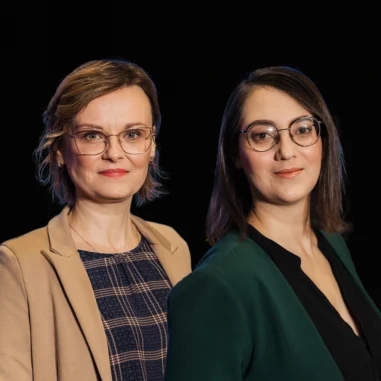
How to protect children from online dangers? Episode 90
What dangers await children on the internet and who is responsible for their safety?
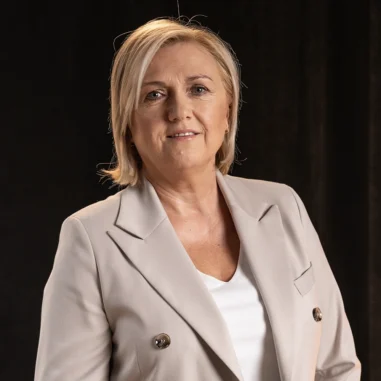
Breakthrough therapies - an end to progressive disability? Episode 88
Multiple sclerosis was until recently associated with irreversible disability, but medical advances are opening up new possibilities for patients.
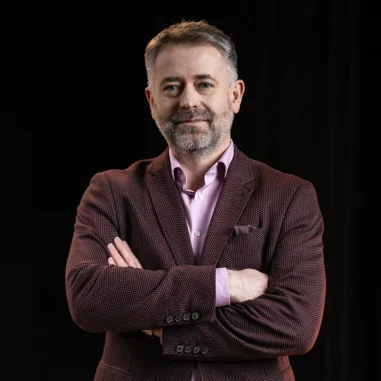
An app that will take care of your family when you are gone. Episode 89
Have you ever thought about what will happen to your affairs, documents and loved ones when you are gone?
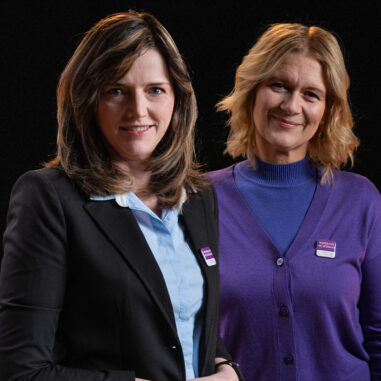
Coalition for the Premature - 12 years of fighting for the health of the little ones. Episode 87
What is life like for families of premature babies and what support can they receive?



